#undoing societal programming
Text
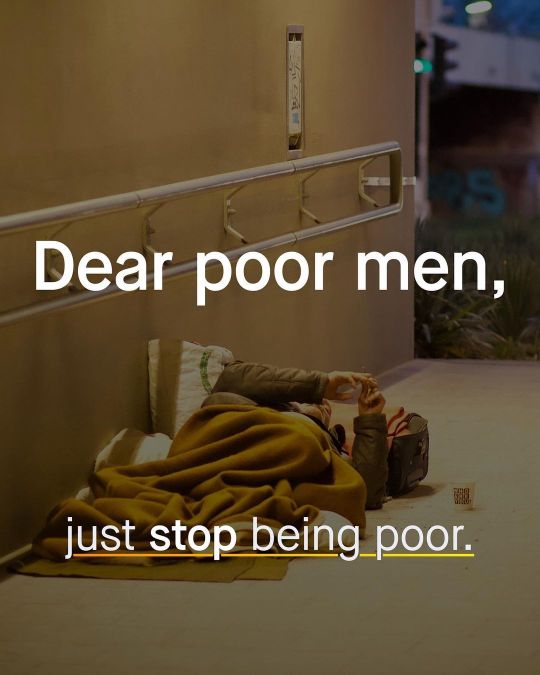
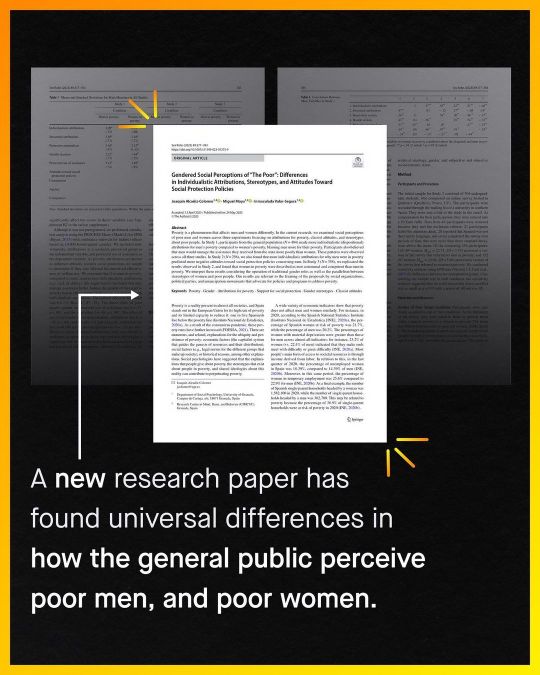
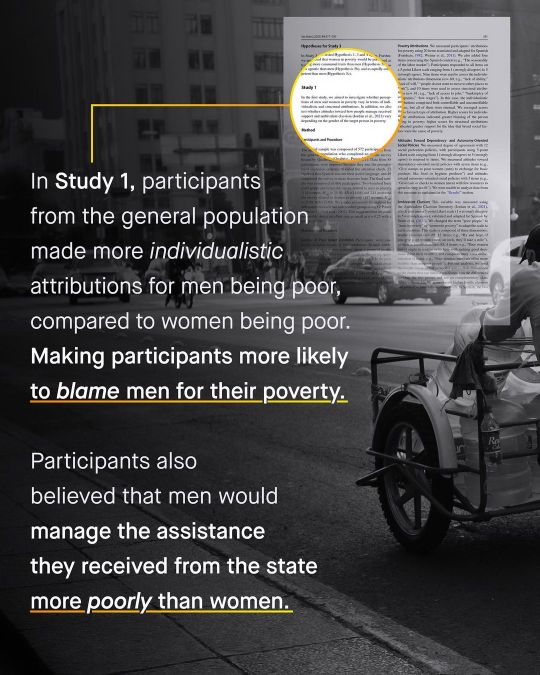
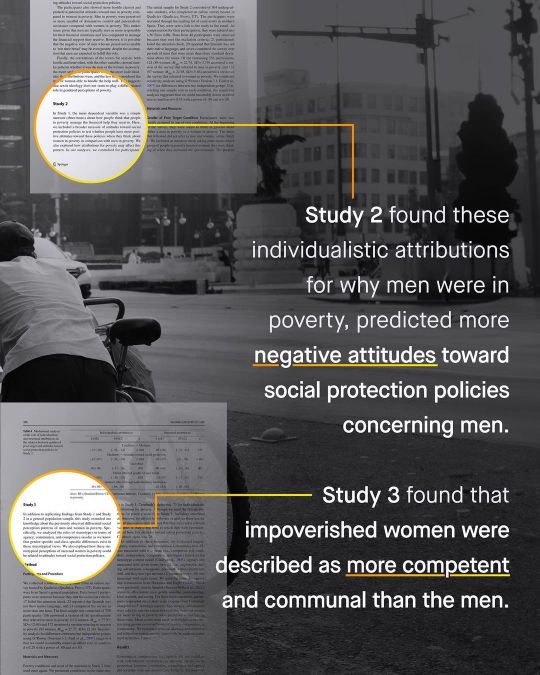
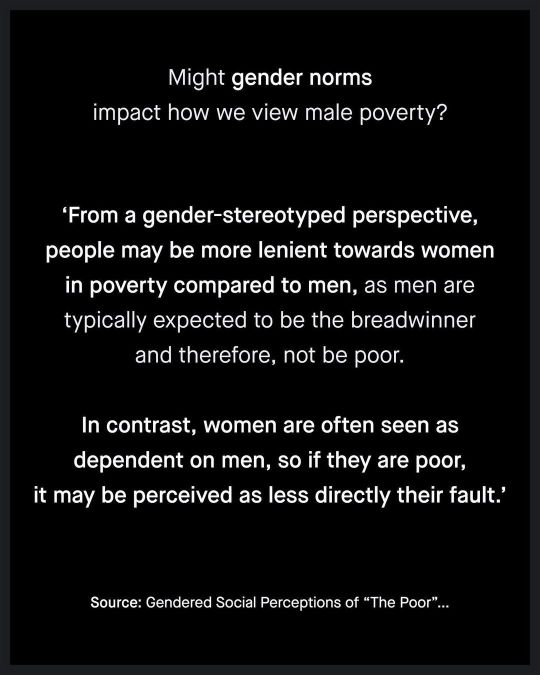

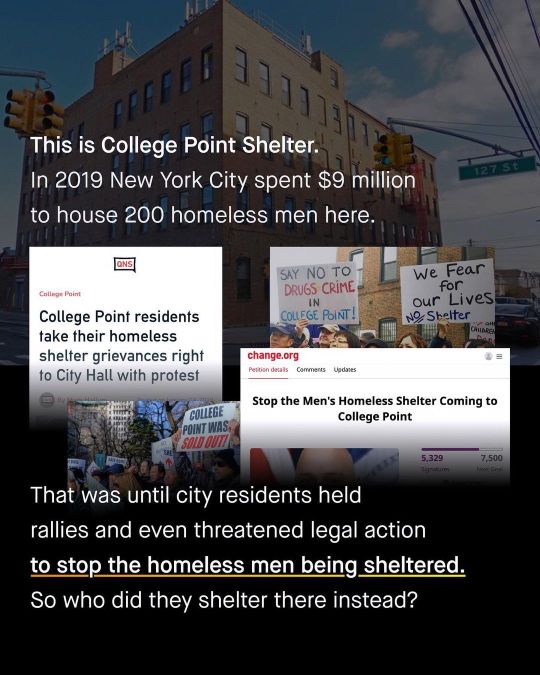

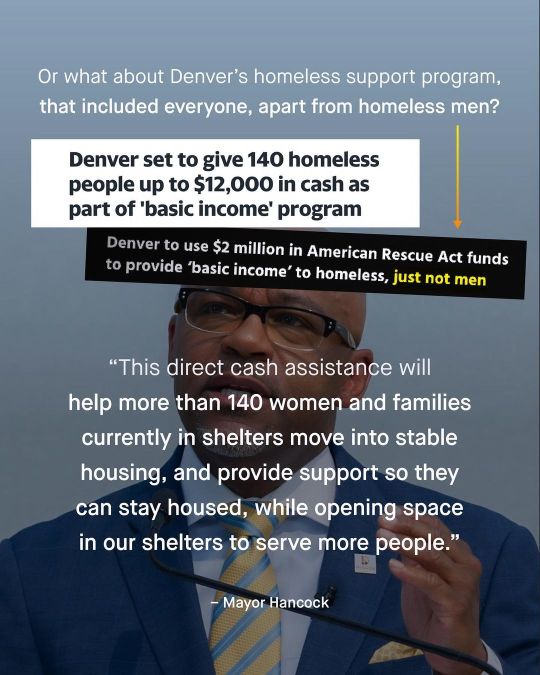
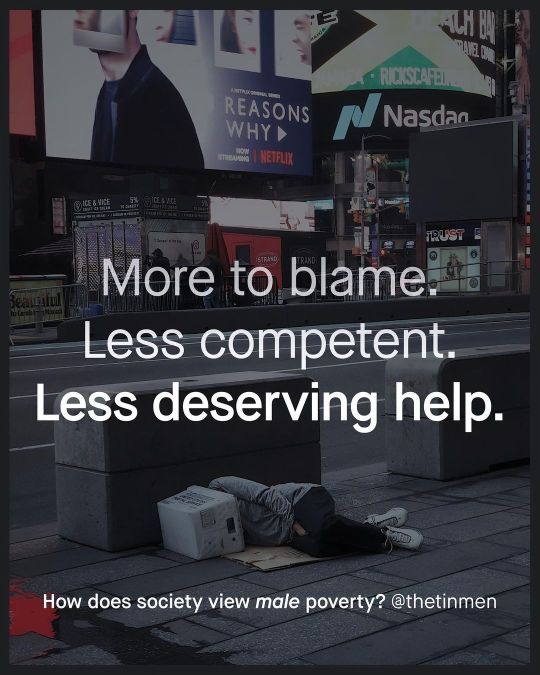
Society sees men and women in fundamentally different ways.
Men are seen as the provider, the breadwinner, and protector of families. Women are often painted as the maternal carers in chief, or the meek damsel in distress, to be scooped up, and carried to safety.
Of course, neither of these regressive archetypes capture the truth of men and women, and over time, society has confronted such harmful stereotypes; be they in the workplace, at home, within business, or politics.
From the top down, gender norms are finally being shaken off and left behind.
But what about the gender norms of poor people – and might these same regressive models of men and women, be impacting the way society sees and helps those living in poverty?
Well, the latest science suggest it does –
A new 2023 study has found we see poor men as more to blame for being poor, as more incompetent, and consequently, less deserving of protection of societal support.
We look at a poor man and ask ourselves, ‘what has he done, or what mistakes has he made, to lead him to this life?’
Surely, he is at fault for this situation, and he is the only one capable of hauling himself out of this mess.
“Pull yourself up by the bootstraps man, get yourself together, and sort your life out!”
The familiar life lessons from privileged brats (who have likely never known such hardship) dished out with a side portion of smugness.
But it’s not quite the same on the other side.
As for poor women we more often ask, ‘what has been done *to her*, how has she been wronged, or hurt, to leave her destitute in this way?”
Women are the passive object of fate, and men are the instigator.
It makes little sense to me.
Worse, from these antiquated and harmful attitudes are borne intervention strategies, shelters, and support programs, actively refusing to help men – the group most likely to experience homelessness.
So, do we see poor men and poor women differently?
And who will confront and undo such gender norms, that have left so many of these poor men out in the cold, for so long?
What do you think?
-
Study:
==
This inequality and discrimination has a bodycount.

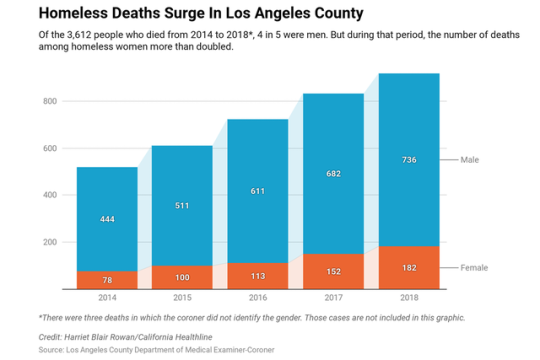
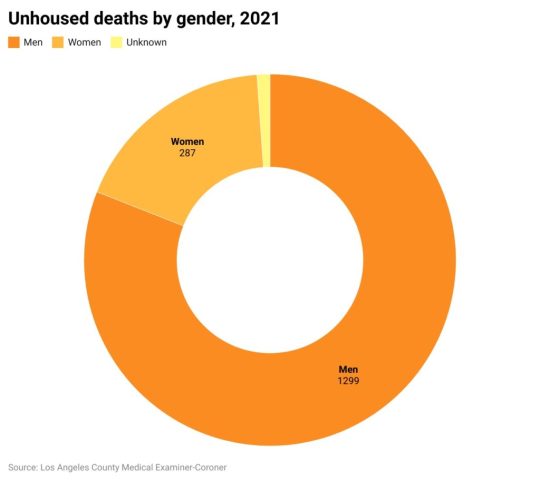
#The Tin Men#homeless#homelessness#misandry#gender inequality#gender equality#religion is a mental illness
25 notes
·
View notes
Text
Did We Not Warn You?
There’s so much wrong with the reported overturning of Roe v Wade by the Supreme Court.
Four of the justices are perjurers, telling the Senate one thing under oath then doing the opposite.
The Republican Party has given up all pretext of responsible government, legal precedent, and societal norms. They deliberately blocked one nominee to the Supreme Court in order to cream three of their own in.
And they don’t even believe in what they peddle to the rubes.
They made a deal with the devil back in the 1960s when they invited ultra-far right wingers, ultra-fundamentalist religious leaders, and out & out white supremacists into the party.
All the better to serve the needs of the ultra-rich.
For half a century these bigots have been vowing to undo Roe v Wade.
They also promised to do away with civil rights for all Americans by rolling back programs designed to protect minority, disabled, and LGBQT citizens.
They’ve even vowed to overturn Federal laws preventing states from banning interracial marriages, and if you’re one of my GOP friends who are now claiming, “Oh, come on, Buzz, they’d never do that” let me remind you that’s exactly what you promised about overturning Roe v Wade.
The leaked report indicates they are bulldozing over literally centuries or legal precedent, applying a twisted and contorted reading of the Constitution which will immediately open the floodgates on scores of lawsuits using that interpretation to knock down hundreds of laws and programs that have benefited this country.
There’s only one way to stop this and that’s to vote the current GOP out of office.
It’s happened before; in fact, the GOP itself was the beneficiaries of the collapse of the Whig party in the years before the Civil War.
We are entering perilous times.
Don’t say we didn’t warn you.
Oh, and lest anyone think I’m going light on the Democrats, guys, this is a five-alarm fire, full boire emergency, all hands on deck.
No more protest votes for third party candidates, no more “well, that candidate isn’t very likeable”, no more “they’re all the same”.
No.
They’re not.
Vote against the GOP until such time as they collapse as a political party and a new, saner conservative party arises from the ashes.
It’s the only way to secure your children’s and grandchildren’s future.
© Buzz Dixon
15 notes
·
View notes
Text
Global Awareness Initiative: Women’s Equality
Ensuring equal opportunities and decision-making authority for both women and men is a fundamental human right, yet our society grapples with a significant disparity in access to these privileges. Worldwide, women encounter fewer chances for economic engagement compared to men. Women have less access to education, greater health and safety risks, and less political representation.
The Peace Corps’ definition of gender equality is as follows,
“Gender equality means that men and women have equal power and equal opportunities for financial independence, education, and personal development. Women's empowerment is a critical aspect of achieving gender equality.”
Women’s equality and empowerment enhances a woman's self-esteem, her capacity to make decisions, her access to opportunities and resources, her autonomy and influence over her life within and beyond the household.
Gender inequality is a major issue that has, and continues to persist through time. In modern society, women’s perspectives are often portrayed in the media. A recent example of this is the movie Barbie (2023) directed by Greta Gerwig. Barbie examines the societal expectations placed on women, the influence of patriarchy, and the overall female experience. Gerwig illustrates the overwhelming pressures women face from both societal norms and their own internalized expectations throughout the movie.
One of the most memorable moments of the film is the character Gloria’s monologue:
Barbie Monologue
Some of the themes of this dialogue include self-acceptance, unrealistic expectations, idealized femininity, and male vs. female roles in society. Gloria's frustration regards the contradictions women encounter. This begins to enlighten Barbie about the expectation for women to navigate a delicate balance between their authentic selves and societal expectations. However, it becomes evident that this tightrope inevitably leads to failure. This teaches women they should not worry about whether others approve of them because trying to meet their expectations is a waste of time. A lesson that young girls must learn is to embrace your genuine self, including your imperfections, because self confidence comes from within, and not from the approval of others.
The "Dream Gap"
The Mattel Toy Company, makers of Barbie, have started an international initiative called the Barbie Dream Gap Project Fund. It is “a global mission dedicated to closing the gap by challenging gender stereotypes and helping undo the biases that hold girls back from reaching their full potential.” While strides have been taken towards achieving gender equality, lingering stereotypes and societal biases persist, potentially influencing a girl's path and future decisions. As part of their commitment to the cause, Barbie donates $1 from every doll sold in the U.S. to the Barbie Dream Gap Project Fund, and since 2019, Barbie has donated $250,000 every year to non-profit partners that work directly with girls and enable them to reach their full potential.
The Dream Gap is the space in between young girls’ wildly imaginative ambition and their full potential. Starting at age five, many girls begin to develop limiting self-beliefs. They stop believing their gender can do or be anything. This is the Dream Gap, and this is what Barbie is working hard to combat.
Sources:
youtube
youtube
https://arbiteronline.com/2023/08/28/come-on-barbie-lets-go-party-the-barbie-movie-is-a-raw-analysis-of-the-female-experience/
1 note
·
View note
Photo

Undoing bikeshare’s original sin
By American standards, Minneapolis is a bicyclist’s paradise. With some 200 miles of bike lanes and trails, the city uses special equipment to keep them clear of snow and ice during winter. The City of Lakes consistently places near the top of lists ranking the best U.S. cities for biking. With two-wheeled transportation so popular, it’s no surprise that Minneapolis’s bikeshare system, known as Nice Ride, was among the first to launch in the U.S. 13 years ago. Usage dipped a bit during the pandemic, but Nice Ride still provided more than 260,000 trips last year. So it came as a shock when Racket, a local news platform, reported in March that Nice Ride would shut down. The reason: Blue Cross Blue Shield declined to renew its $3 million annual title sponsorship, which left a gaping hole in Nice Ride’s budget. Lyft, the system’s operator, was unable to find a way to fill it, and state and local officials declined to provide a backstop. That was the end of docked bikeshare in Minneapolis. “The city is disappointed that we’re losing Nice Ride,” said Dillon Fried, the city’s interim mobility manager. “We wish they were still here.” At its surface, the Bay Area’s bikeshare story looks similar. Bay Wheels, the regional service for San Francisco, Oakland, San Jose, and nearby municipalities, is also operated by Lyft. Like Nice Ride, Bay Wheels saw usage drop after the pandemic as many people worked from home. Both systems also encountered unexpected financial difficulties: Although Bay Wheels didn’t have a title sponsor, a recent spate of vandalism has increased its maintenance costs. But there is one fundamental difference. In the Bay Area, local leaders have allocated $16 million to safeguard Bay Wheels’s future. “Unlike Minneapolis, we’re unwilling to lose the bikeshare provider,” said Andrew Fremier, executive director of the Metropolitan Transportation Commission, which arranged the investment in Bay Wheels. “We weren’t willing to have bikeshare go dark.” The new funding will help Lyft upgrade Bay Wheels’s infrastructure and reduce membership costs. Baywheels operates a bikeshare program in San Francisco. [Photo: Lyft] Why are the Bay Area’s leaders revitalizing bikeshare, while Minneapolis officials are resigned to losing their system? The answer goes back to bikeshare’s initial emergence in the U.S. 10 to 15 years ago. At the time, many cities promised that their systems would operate without public subsidy, with users and sponsors covering costs. That approach diverged from European cities, but it seemed to work out—at least for a while. The 2010s saw a veritable bikeshare boom, with urban residents across the U.S. gaining access to a uniquely healthy, green, affordable, and space-efficient form of mobility. Curbed writer Alissa Walker dubbed bikeshare the biggest transportation success story of the decade. But times have changed. Expecting bikeshare to operate without subsidies may have been politically necessary a decade ago, but it’s now starting to look like an original sin. After all, it’s hard to understand why the survival of a thriving system like Nice Ride should depend upon corporate largesse. And with many dense neighborhoods already well-served, it’s not clear that bikeshare operators can afford to expand further into low-income and sparsely populated communities. There are opportunity costs, too: Without subsidies, bikeshare systems will struggle to capitalize on the soaring popularity of e-bikes. What’s the big problem with putting public money into bikeshare, anyway? After all, most policymakers recognize the need to subsidize transit, due to the expense of operation and the societal benefits that buses and trains provide by reducing congestion and emissions (not to mention providing low-income residents with essential mobility). But bikeshare checks all the same boxes. So why have U.S. cities resisted subsidizing it? As Minneapolis’s experience reveals, this is not a theoretical question. If cities will not put money into subsidizing their system, they should be prepared to lose it. Citi Bike operates a bikeshare program in New York and New Jersey. [Photo: Robinson Greig/Unsplash] Bikeshare was the hot new thing in urban mobility when it arrived on American streets in the early 2010s. Early boosters included urbanist luminaries like Gabe Klein, who launched systems in Washington, D.C., and Chicago when he ran those cities’ transportation departments, and Janette Sadik-Khan, who oversaw the creation of Citi Bike in New York City. Bikeshare’s novelty in the U.S., along with its success in foreign cities like Montreal and Lyon, conferred a touch of global cool. “To be a world-class city, you need to have a bikeshare program,” said Bill Dossett, the longtime executive director of Nice Ride, seven years ago. Beyond its hip image, bikeshare offered plenty of upside for city residents—even if they would never use it. Most obviously, bikeshare could replace car trips, in the process reducing emissions and traffic jams. The new systems could also compliment transit by helping residents reach stations, while their modest cost (Capital Bikeshare memberships were initially just $50 per year) made them affordable for low-income residents. Docked bikes might even serve as a gateway drug for two-wheeled commuting; one survey found that bikeshare led people in the Washington, D.C., area to ride their own bikes more often. (I’m living proof of this phenomenon. In 2012, I wobbled through my first Capital Bikeshare ride; within a few months I got rid of my car and bought a bike that became my main mode of transport.) For those still on the fence, early bikeshare boosters offered one additional talking point: The new systems would not require an ongoing contribution from local governments. In a 2015 op-ed, Klein described his initial bikeshare pitch to D.C. Mayor Adrian Fenty: “[Mayor Fenty asked,] ‘Could it break even or be profitable operationally?’ I said, ‘I think so,’ and aimed to make that happen.” “At the time, there really wasn’t political will to allocate money to bikeshare,” said Scott Kubly, who worked closely with Klein to launch both Capital Bikeshare in D.C. and Divvy in Chicago and later ran the Seattle Department of Transportation. “If you were a city transportation official, you had to figure out how to make it happen. Bikeshare wouldn’t have existed without that entrepreneurialism.” Sadik-Khan, who launched Citi Bike in New York City, saw her no-subsidies approach as a national model. In a 2016 interview she predicted, “You’re going to see mayors looking to install these new systems, not having to use their public funding to do it, but utilizing the private sector to be able to double down on that kind of investment.” Instead of receiving local funding, many systems relied on multi-million dollar sponsorships from companies like Citibank (New York City) and Blue Cross Blue Shield of Massachusetts (Boston) to keep them afloat. According to a report by NABSA, a shared mobility industry association, in 2019 rider fees contributed just over half of revenues for an average bikeshare system, with sponsorships providing 30% and public subsidies just 12%. In some big cities, bikeshare actually contributes money to public coffers. In Chicago, for instance, Lyft is contractually obligated to pay the city at least $6 million annually to operate Divvy. Chicago [Photo: Raymond Boyd/Getty Images] Although many U.S. city officials shied away from funding bikeshare, it’s not clear that they should have. After all, riding a shared bike generates myriad benefits for all city residents, such as cleaner air and less congestion. Economists call these effects “positive externalities,” and consider them to be justification for public subsidies. Indeed, Europe has embraced bikeshare funding in a way that the U.S. has not. As a result, rides in American cities can be stunningly expensive by European standards. For example, a visitor taking a 30-minute pedal bike ride would pay €1 ($1.09) in Brussels and 1.65 pounds ($2.06) in London, but $3.49 in San Francisco, $4.49 in New York City, and $6.10 in Chicago.Even with minimal public support, American bikeshare flourished during the 2010s. According to the National Association of City Transportation Officials, docked systems nationwide provided some 40 million trips in 2019. In New York City alone, Citi Bike riders took almost 20 million rides in 2020—more than all transit trips that year in Sacramento or Cleveland. And bikeshare’s projected benefits turned out to be real: One study found that Capital Bikeshare reduced traffic congestion in D.C. neighborhoods by 4%; another researcher estimated that every ride that replaced a car trip avoided a pound of carbon emissions. Even infamously bike-wary small business owners were supportive: 70% of those in the DC area said that bikeshare enhanced their neighborhood. But beneath the surface, bikeshare management was growing more complex during the last decade. Many systems began by launching in dense, downtown areas where it was easiest to operate profitably. To expand further, systems would have to venture into sparsely populated or less affluent areas where revenues would not cover costs. Meanwhile, the rise of dockless scooters brought new competitors for docked systems. And since bikeshare is less novel today than it was a decade ago, big-dollar corporate sponsorships may be harder to secure. If so, Minneapolis is unlikely to be the last city unable to replace a title sponsor. (Lyft declined to say whether bikeshare is currently profitable for the company.) Washington, D.C. [Photo: Andrew Harrer/Bloomberg/Getty Images] And then there are e-bikes, the wildly popular vehicles that have outsold electric cars in the United States. Many of the bikeshare systems that introduced e-bikes have found them to be a sensation—but their popularity comes at a cost. “At peak times, Citi Bike’s e-bikes are used up to 15 times per day, compared to 4 to 5 times per day for pedal bikes,” said Laura Fox, who recently left her role as Citi Bike’s general manager. “Batteries therefore have to be swapped out once or more every day,” with staff shuttling from station to station to replace dead batteries with new ones. Beyond the cost of procuring the e-bikes themselves, the ongoing process of replacing spent batteries requires labor, time, and money, constraining operators’ ability to deploy them. Happily, there is a solution. Electrifying bikeshare stations would allow electric bikes to be charged automatically before the next rider unlocks them. “If we have 20% to 30% of stations electrified, we can reduce battery swaps by 75% to 80% in a big city like New York,” said Caroline Samponaro, Lyft’s head of transit and micromobility policy. “That would eliminate a major cost driver.” According to Lyft, electrifying a station can cost around $100,000, suggesting that adding electricity to 25% of Citi Bike’s 1,700 stations would total roughly $50 million. Expecting Lyft alone to cover such expenses seems dicey, especially given its tanking share price (which is down more than 60% in the last year) and the limited time horizon of many bikeshare operating contracts. Some cities have concluded that bikeshare’s challenges—as well as electrification’s tantalizing potential—warrant new public investment. Boston Mayor Michelle Wu, for instance, recently proposed contributing $1.4 million to add e-bikes to the local Bluebikes network. In Austin, the city is seeking state funding to expand MetroBike, the system it runs in partnership with the local transit agency. And then there’s the Bay Area’s new and precedent-breaking $16 million investment in Bay Wheels. “Bikeshare doesn’t appear to be a moneymaker without a subsidy, just like transit,” said MTC’s Fremier. “But all the cities in this region see Bay Wheels as a benefit.” The new funds will help replace the system’s aged equipment, procure new e-bikes, and electrify 8 to 10 stations (the price of Bay Wheels membership will also drop by $19/year). Fremier believes that offering public funds was a necessary move: “Lyft came to us and said they couldn’t keep going through the losses that they’re having, and we validated it with financial information they gave us.” Kubly, who helped bring bikeshare to D.C. and Chicago over a decade ago, applauds the city leaders who are showing new willingness to cut checks. “Bikeshare today cannot go without subsidy if you want to have any semblance of a public policy goal,” he said. “If you want it in low-income areas or if you want it to be price-competitive with a cab, you’re probably going to need to subsidize it.” If there is ever a time for cities to start funding bikeshare, now seems like the right time to do it. Not only are e-bikes positioned to fuel a new era of bikeshare growth, but the 2021 passage of the bipartisan Infrastructure Bill opened new spigots of federal funding that could help cover the costs of electrifying stations, including the Charging and Fueling Infrastructure and National Electric Vehicle Infrastructure programs. (It doesn’t hurt that the person overseeing billions of dollars in EV infrastructure implementation is none other than early bikeshare believer Gabe Klein.) Even without federal dollars, the funding needed to shore up bikeshare’s future need not overwhelm city budgets. As a point of comparison, the cost of electrifying 25% of Citi Bike docking stations is about as much as New York City spends annually to subsidize its ferry services—which transport barely a sixth as many people. Yes, the provision of subsidies breaks a decade-plus expectation that bikeshare should pay for itself. But given these systems’ manifold societal benefits, as well both the challenges they face and their current potential to scale, it’s time to abandon a policy that has outlived its usefulness. Lucas Peilert provided research assistance for this article.
https://www.fastcompany.com/90883010/undoing-bikeshares-original-sin?partner=rss&utm_source=rss&utm_medium=feed&utm_campaign=rss+fastcompany&utm_content=rss
0 notes
Video
youtube
Undo Societal Programming & Be More Powerful ∞The 9D Arcturian Council, ...
0 notes
Text
was talking to an friend/acquaintance about like, interacting with people of varying opinions and navigating public spaces where not everyone is going to be as socially conscience as you and some people might even be blantantly harmful but in a way that is still socially acceptable and how to like, try and be the ref of social interactions but in a constructive way where people don’t dismiss you outright and even hopefully hearing what you have to say, and we got into the topic of the “unfairness” of the “rules” of being “woke”. Like how, it’s not good enough to know that you didn’t mean to do harm, and that there are a lot of things that are currently problematic not because of any innate harm of the action itself, but because of the context of the society we live in. And he was getting to a place that I find that a lot of (fellow) white people get to when we do have private and frank conversations on race and the likes of it. like they get to a spot of realizing that, as people who want to be good people, there are going to be situations in life where you *will be* the bad guy, regardless of intent, and there will no way not to be the bad guy, because of the fact that racism exists. “It’s unfair that I’m going to be called racist for X no matter what” and having to refocus that. Like, yeah but, that’s because racism exists. and while I can’t say it’s your fault or my fault, we live in the reality of it. It *is* unfair that there will be things I cannot do without causing harm, and it should make you mad that there are things that have become inherently racist and harmful even if “in a perfect world” they wouldn’t be. The issue is the anger is then turned to those pointing the racism out, that it would have been fine as long as no one pointed it out. And the trick is to realize that there are things that *would* be fine if racism didn’t exist, but it does exist. And recognizing that racism (and all forms of societal/systematic oppression) fuck over both sides issue. If white people really want to do good, but hate that becoming more socially aware means that they have to become self aware of how they are barred from being the good people they want to be no matter what, then that should be the motivation to work to ending it.
Like…. The cognitive dissonance of racism means that the more you work to undo your racist programming, the deeper and more prolific you realize the issue is. Becoming aware of the problem makes it more obvious in all the ways it manifests, and where someone used to be able to walk freely are suddenly aware of the ways that even against their will they are committing harm onto others, and the (for lack of a better term) evil they are complicit in.
And like, if these are people that you do care about, like you want them to be better, I’d say don’t shy away from that discomfort. Ime it is much more productive to be like “yeah that sucks, and that’s why I continue to try to center the weight of my actions when I do things.” Like the way I see it, for white people there are two kinds of racism, the racism that is internally generated and rationalized, and then the kind that is cast onto us simply because we live in a racist society. and tackling that second one is difficult because being white means you can live free of the burden of being constantly aware of race, which in turn perpetuates the “wait how is that racist?” Mindset because it’s not anything inherent to the actions but to the context.
I’m running out of words and I’m still thinking on it but the amount of anxiety I see in other white leftists both struggling with their own internalized racism and the racism of their peers and family around them is frankly debilitating, but I don’t think the goal is “how to not feel anxious about racism”, I think the goal needs to be “how to channel your anxiety about being racist into getting work done and not running away”
Luckily, it really does mean, more often than not, shutting up and not actually doing something, like it’s not adding work unless you count self restraint as work but yeah.
#every time I get another leftist alone in the room with me I’m like#anyways wanna tackle some internalized racism with me 👁👄👁
1 note
·
View note
Text
Servitor [dev diary #4]
Story ideas:
Wholesome slow swap transformation story between a cozy game computer program & a sad world-weary weebo human sapient user wishing to forgoe the modern adult life burdens
DID mind simulation with tulpas, servitors and liquid democracy into the mix
Self and parallel time clone sex NSFW story
Fluffy-Yiff-ception (temporary self-sexual furry pregnant 6-hour monster story)
Meditation scripts, reality shifting scripts, affirmation cards and subliminal affirmations tracks
True Polymorph & Chronokinetic wholesome saga story
Undoing the far far away future Servitor grid issues with humane means (Reverse Terminator in most ways)
Alternate virtual reality & virtual agents romances
Capture, Record, Release (alternate monster tamer design challenge)
Morphological Freedom illustrated as a infographic story of gender euphoria & social empowerment
Coven of Hexes and the Law system (How did a coven of witches won the war for workers and traditional wholesome)
Optimistic Tron-like narrative of wholesome future
Isolation(/Reich), first person shooter game about escaping authoritarians... and a disease at once
Bitwise shifts time-sharing cycle tabletop board game between sapients & synthetics (Cluedo + Monopoly mashup with ticking counters added)
Addventure comment thread result stories to insert yourselves into Angora back into storytime compilation videos
Late Sovietwave Cyberpunk story of violence and wisdoms bringing a Solarpunk future at the later end of the climate crisis
Nuclear apocalypse alternate history/future scenario in multiple stages of societal decay
Symbols of Divine (modern mythologies clash with old mythologies and the timely crisis that insues)
Public wisdom (Golem construct lives and accumulates legitimate good karma as he ages for centuries, and ends up dying in good faith to preserve history for millenias to come)
Multi-Fandom take of war between my oldest OC, the involved fandoms' casts and my own cast of successors (Maya, Arya, Valence, Dana, Lima, Saller, Pan), seeing the wholesome end of the arch nemesis repairing the errors he makes all by themself as he realizes some lessons from the heroes he won against similarly to Mastermind's intrigue)
I guess you want to see it all, right?
0 notes
Text
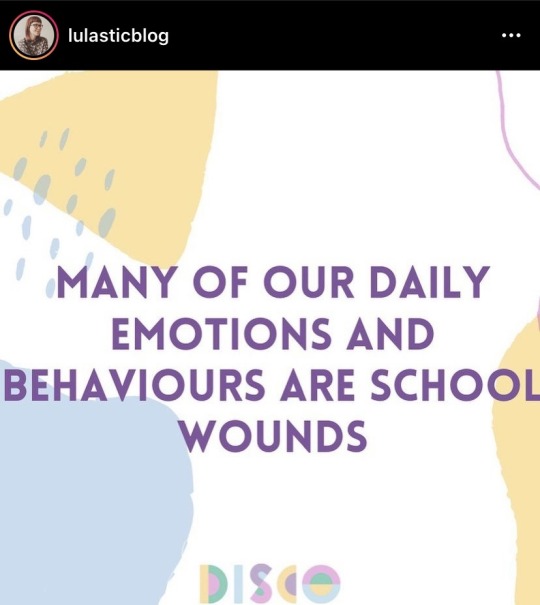
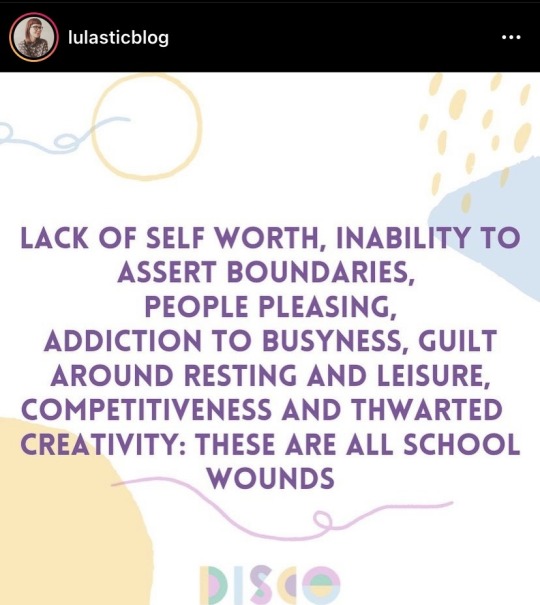

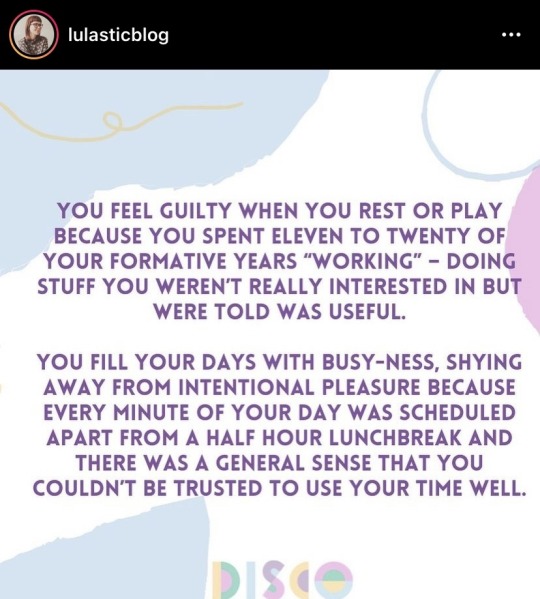
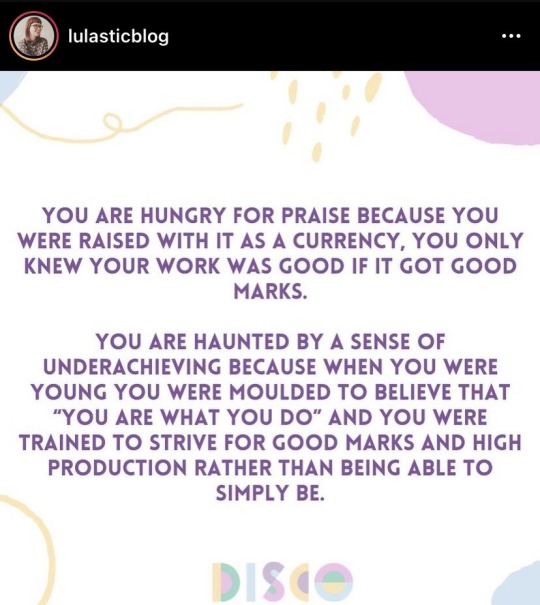
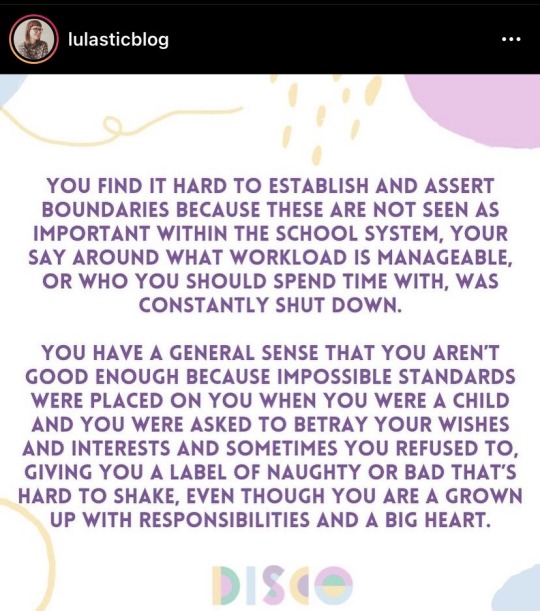
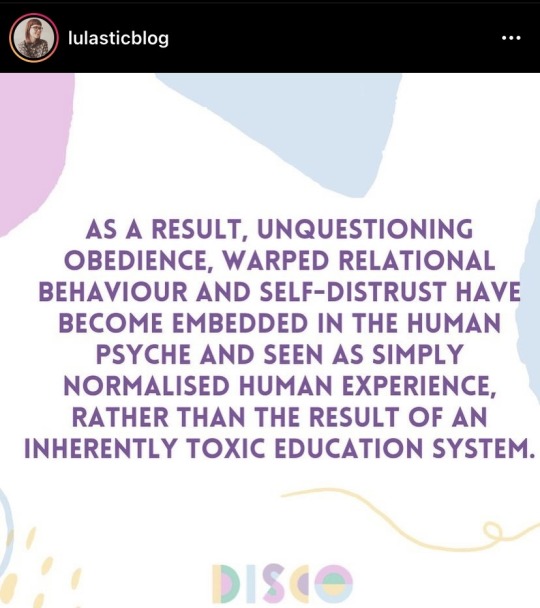
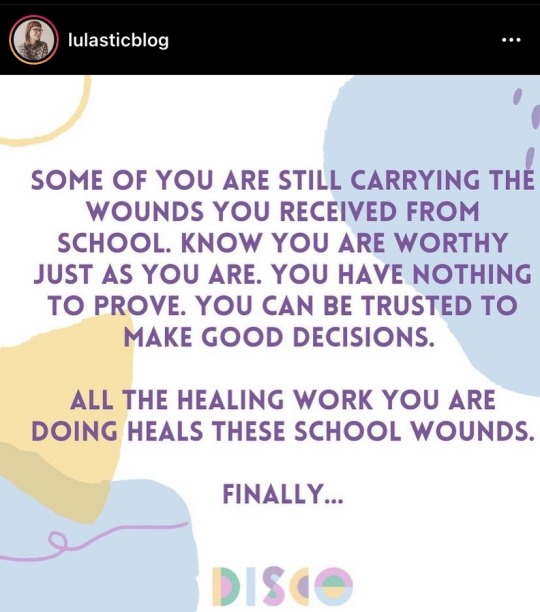
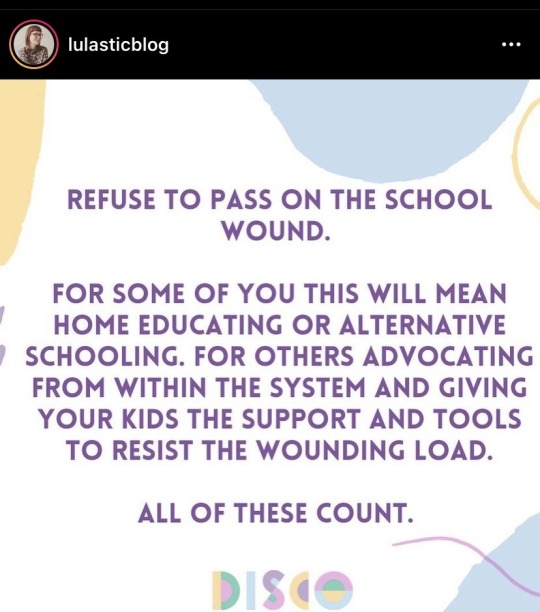
#internalized capitalism#internalized shame#toxic shame#shame programming#perfectionism#rest#human being not human doing#mental health#emotional health#balance#creativity#inner child healing#reparenting#play#boundaries#childhood trauma#childrens rights#school#education#undoing societal programming#unlearning cultural programming
1K notes
·
View notes
Note
Hey , hope you are doing amazing , i have been wanting to ask you So basically i was listening to a hypnosis (weight loss hypnosis) and all of a sudden i felt like i kinda jumped on bed ,like i was laying down and the moment i drifted off to sleep , i felt like i bounced on the bed and i realised i didn't do that , i was still in my place and haven't moved yet and it was not the first time and i had no intentions of it. But idek and i felt absolutely no weird sensations or tingles but i was meditating and quite conscious , so do you think it was (OBE) or something (it was not astral travel) Because i have felt it sometimes in my sleep and then suddenly i feel i bounced and wake up but then i realise its nothing and go back to sleep. What do u think it is and why is it happening to me. Also any anon willing to help me , i appreciate it. And please advise me something on weight loss. I have been trying for more than years but no results. I guess there is unconscious programming or something and i get triggered by hearing word fat . how can i know the root cause as to eradicate it . also suggest me some books about it. Take care love ♥
Hi!
Well, I'm not there with you so I can't say for sure what the bouncing is. It definitely doesn't sound like astral projection. It could be an OBE but it could also just be the usual "symptoms" that can come with meditating. When I get into a deeper meditation I often feel like I'm spinning (not the room, me) but obviously, in the 3D I'm not actually spinning. It could also be similar to that "falling" sensation that a lot of us feel when we're drifting off to sleep and the body wants to check that we're still alive. Again, since I'm not there or in your body I can't say for sure what the bouncing is. Sorry!
When it comes to your weight loss journey this is what I suggest:
Watch this video. Now listen, I can't undo years of societal fatphobia in one post but I can (hopefully) leave you with the knowledge that the word "fat" is not a dirty one. This video helped me years ago and hopefully, it can help you now! If not, that's completely okay. But it might do you some good to think of the word fat as a descriptor instead of a shameful word, just like the way we say "skinny" is also used as a descriptor and not inherently tied to a person's worth.
The root cause of this is likely due to ingrained fatphobia. I don't know how much you weigh, if you're "actually fat", have body dysmorphia, or just have a skewed perspective of how little people should weigh. But regardless, the society in your reality has caused you to feel shame for how much you weigh. At this point, you don't even have to manifest weight loss if you don't want to. You could also manifest society changing its mind or revise that fatphobia never existed.
But anyway, the best way to go about this, especially with manifesting, is self concept. Now, while I don't think having a perfect self concept is needed for every manifestation (it isn't), it does help, especially when it comes to very physical and personal changes like body weight. If you see yourself as fat, then you are. You can't change your body in the 3D if you don't change it in the 4D first. So first, stop looking at how much you weigh, stop seeing yourself as fat, stop giving the 3D power. Remember, you are above the 3D. It has no power.
I can't be sure but it does sound like you're chasing after this desire too which isn't great. It means you're likely putting this desire on a pedestal which means you're giving both the desire and the 3D power over yourself. Again, not great and doesn't help with the law (the law that states that you are the most powerful).
I can't really give you any more advice than anyone else can. Here's a little challenge instead! I want you to completely forget about manifesting weight loss for now. Don't think about it. Instead, spend a week, give or take, working on your self concept. Don't think about what you want to manifest. Just think about yourself and how powerful you are. Trust me when I say that you will feel better by the end of this. I really recommend reading those posts I linked in my self concept post; they're incredibly helpful! I also suggest reading this post! It's one of the best ones I've ever seen in regards to desires on pedestals and how unhelpful it is.
I'm not sure if you mean books on manifestation or books on weight loss. For manifestation, pretty much anything by Neville Goddard works but for this issue, I recommend "At Your Command" and "The Law and The Promise". If you're asking about weight loss books, then 1. I don't know any, and 2. you don't need to work on it in the 3D for it to manifest. You don't need to go on diets or workout or do anything that "logically" gets rid of weight. Trust in yourself and in the law and you'll be fine.
#hope this helps love#manifestation#manifesting#law of assumption#loa#neville goddard#cw weight loss#long post
17 notes
·
View notes
Link
October 8, 2020
As communities across Canada, and around the world, grapple with COVID-19, racialized communities have not only been disproportionately impacted by the health fall-out, but are also dealing with the violent legacy of colonialism, police brutality, and systemic racism.
Canada’s unions are committed to standing in solidarity with racialized and Indigenous communities in upholding principles of equity, justice, and human rights. These are principles central to the labour movement.
The efforts required to undo systemic racism will necessitate difficult and ongoing conversations and the formulation of deliberate strategies to educate, empower, and engage all workers. We all have a responsibility towards dismantling systems that perpetuate racism and inequality and towards rebuilding new ways of promoting the health and well-being of our entire collective.
Following the spate of tragic killings and abuse of racialized and Indigenous people at the hands of police in both the United States and in Canada, a key demand that has emerged from human rights advocates and targeted communities includes a call to defund the police.
The context and meaning of this demand is critical. While the brutal killing of George Floyd earlier this past summer was a galvanizing moment helping to propel anti-Black racism and its impacts into the public consciousness, the long history of police brutality is a key factor.
The traumatic legacies of slavery, oppression and colonization continue to reverberate throughout society and this includes in the ways in which law enforcement agencies have been overpolicing, surveilling, and at times, even killing, members of racialized and Indigenous communities. Racial profiling, so-called ‘random’ street checks, the disproportionate number of Black and Indigenous people in prison, the presence of police in schools and the disproportionate number of violent interventions by police must all be addressed.
The call to divert funding away from police services towards community support is justified when cuts to youth programming, investments in affordable housing and mental health supports, and other key social programs have hurt far too many vulnerable communities. In fact, over the last few decades, there have been considerable increases in police budgets, at the same time as austerity measures eroded public funding for community and social programs and services throughout various levels of government.
In far too many Canadian municipalities, provinces and territories, budget allocations for police services outweigh combined spending on other priorities like public transit, libraries and parks and recreation. This spending has accompanied the increased militarization of police services in Canada, reflected in the purchase of armored vehicles and tactical gear more suited for battlefields than urban and suburban neighbourhoods. Due to the chronic underfunding of social programs, police services are expected to address a host of societal challenges and crises – situations for which their training, culture and mandate are ill-suited.
It is incumbent on working people to demand that public services be assigned towards lifting communities up and helping people reach their fullest potential.
Canada’s unions support efforts to reduce federal, provincial, territorial and municipal budget allocations to police services, and to reinvest these funds toward alternatives to policing, such as community-based health and social services and programs, mental health supports and crisis intervention, public transportation, cycling and pedestrian infrastructure, services to prevent and address gender-based violence, addiction treatment and harm reduction programs, among others.
On a broader scale, increased government investments in affordable housing, mental health care, child care and employment supports would have a direct impact on the health and well-being of our most marginalized communities, promoting public safety and addressing the root causes of violence.
Canada’s unions stand in solidarity with the call to defund police budgets, which have continued to grow exponentially as public services, have been reduced or eliminated. The labour movement further supports efforts to look at the ways in which law enforcement agencies have upheld legacies of harm, as well as to re-examine how resources could be better allocated towards strengthening our communities and helping the most vulnerable.
Furthermore, leaders within Canada’s unions reiterate their commitment towards advancing human rights within our own unions; among our staff and leadership, and in collaboration with communities. This will require ongoing efforts, which include education, advocacy, training and resources. We will continue to strive to achieve and model the highest standards of equity and hold ourselves accountable throughout.
Tagging: @politicsofcanada
#defund the police#Leftism#acab#Black Lives Matter#cdnpoli#canada#canadian politics#canadian news#canadian
106 notes
·
View notes
Text
the healing process is on going and requires full commitment and surrender.
each day you have to wake up and choose better. each day you have to wake up and *choose* to speak softer, walk a little lighter, stay present, and relinquish control of the unknown.
each day you have to prioritize and choose your peace over all else. undoing trauma responses and societal programming is no walk in the park. It’s hard and dirty work for sure.
I applaud everyone that has made the conscious choice to do and be better. for we are light and light workers.
2 notes
·
View notes
Text
By: Max Eden
Published: Sep 19, 2023
Unless you’ve been living under a rock, you know that gender ideologues believe that a man can identify as a woman. But did you know that you can identify as a rock?
This is the position of Gender Spectrum, arguably the most influential gender identity nonprofit in K-12 education. Gender Spectrum’s website says that it has “trained thousands of schools and school districts . . . building the capacities of tens of thousands of teachers, administrators . . . and other leaders to create gender inclusive environments.” The organization has partnered with the National Association of Secondary School Principals, the National PTA, the American School Counselors Association, and the School Superintendents Association, among others. With the National Education Association, it has released a 2015 report titled “Schools in Transition,” the first major policy paper arguing that social gender transitions should be kept secret from parents. And Gender Spectrum consulted on the CDC-endorsed National Sex Education Standards, which recommends promoting puberty blockers to third-graders.
Auditors from Open the Books examined a 2022 Gender Spectrum video training titled “Intro to Neoidentities and Neopronouns.” Naomi Cruz, then Gender Spectrum’s manager of family and educational programming, explained that it’s wrong to assume that gender identity should be confined to variants of male and female. Neopronouns and neo-identities help to break down the gender binary and move “away from a societal gender to a personal gender.” It is “impossible,” she explains, to know all potential gender identities or pronouns. But it’s “really important” to have an “intersectional understanding” of gender because race, religion, location, and even hobbies can affect people’s understanding of gender. (Though some gender theorists claim that gender identity is fixed and immutable, possibly requiring sterilizing hormones and castration, Gender Spectrum’s stance is that gender kinda depends on your hobbies.)
The current neo-identity movement, Cruz explains, got its start on Tumblr in the mid-2010s. These Tumblr posters introduced, among other things, emoji-self genders, with pronouns like J/Js/Jself. You could try to pronounce that as smiley/smileys/smileyself. But for many, the un-pronounceability is the point. Cruz explains that “by having pronouns that are essentially unable to be pronounced and can only be understood when typed online, we are completely distancing ourselves from the gender identities of man and woman.” She may have a point there.
Then there are noungenders—for example, rockgender, moongender, and foxgender. If a man identifies as a woman, then, according to gender ideologues, he truly is a woman. However, if a man identifies as the moon, he is not necessarily the moon. It might just mean that he identifies with society’s perception of the moon. Get it?
It is, however, important to note that you’re not permitted to assume a gender identity associated with another race, Cruz explains. A white person cannot identify as a black-related gender. A white person can, however, identify as a rock. And a black person could, of course, identify as a penguin.
You probably wouldn’t think that autism and borderline personality disorder are gender identities. But you would be wrong, says Cruz. There is autismgender and bordergender. There is also gendervague. Cruz couldn’t quite explain what this one meant, but you can only identify as gendervague if you are neurodiverse.
Anticipating objections, Cruz said that “of course” neogenders are “valid,” and “They are not taking it too far. They are a radical act of stepping away from a system that’s causing a lot of harm for folks.” Using neo-identities is “a way of undoing the gender binary and gender norms, which liberates everyone.”
This all might sound fringe, but Gender Spectrum is no fringe gender-identity organization. Few, if any, nonprofits have done more to influence how public education addresses gender identity and gender-identity issues. And Gender Spectrum believes that rockgender and autismgender are both valid gender-identity categories.
And who’s willing to say that they’re wrong? I contacted the National Education Association, the American School Counselors Association, the National Parent Teacher Association, and the National Association of Secondary School Principals to ask whether they also believe that emojis, rocks, and autism are all gender identities. None returned my request for comment.
That could be because it’s such an absurd question that their communications staff refused to dignify it with an answer. Or it could be because the first rule of gender ideology is that you don’t question the rules of gender ideology, and the second rule is that organizations like Gender Spectrum decide what those rules are—taking their cues, of course, from stuff teenage girls (or possibly rocks, who knows?) say on Tumblr.
==
Religious lunatics have no place in schools.
Catholics, who think the bread and the wine literally becomes the substance of the body of Christ, think Scientology is crazy and Islam is obviously fake and nonsensical. They have entirely no basis to make this claim, as they use the same mechanism, faith, for their own beliefs. When you resort to faith, you open the door for anyone else to use it too, and you forfeit the ability to criticize it or anything done based on it, or gatekeep who can or can't use it. There is no limit to what someone can believe based entirely on faith. Either all faith is valid, or none.
There will be "they/them"s, "she/they"s and "xie/xir"s who think "rockgender" is crazy and "moongender" is obvioulsy fake and nonsensical. They have entirely no basis to make this claim, as they use the same mechanism, self ID, for their own beliefs. When you resort to subjective identification, you open the door for anyone else to use it too, and you forfeit the ability to criticize it or any identity invented based on it, or gatekeep who can or can't use it. There is no limit to what someone can claim to be based entirely on self ID. Either all claims are valid, or none. (And if you say all, just wait til you see what's coming next.)
You can have a deeply personal religious faith that is incontestable but for you alone, or you can have a religion that everyone should respect and which is therefore a matter of public concern and discussion. If we have to be involved, we get a say.
You can have a deeply personal sense of self that is unassailable but for you alone, or you can have an identity that everyone should respect and acknowledge and which is therefore a matter of public interest and opinion. If we must validate and affirm, then we get a say.
Their Catholicism is no different to me than Islam or Scientology. They can believe what they want, but I will not recognize or participate in any of them. Your religion is for you; it does not tell me what to do. If your religion demands others comply, then it's probably fake.
Your "they/them" is no different to me than "rockself" or "moonself." You can identify however you want, but I will not validate or affirm any of them. Your identity is for you; you do not get to tell me how I identify you. If your identity requires others to participate, then it's probably fake.
It was a mistake to pander to this in the first place. It's not "kind" to lie, or to expect others to do so.
#gender ideology#queer theory#genderwang#indoctrination#religous indoctrination#child indoctrination#childhood indoctrination#Gender Spectrum#neo identity#neo identities#neo pronouns#neopronouns#self ID#fake identity#fake pronouns#Be Kind#religion is a mental illness
17 notes
·
View notes
Text
Did We Not Warn You?
There’s so much wrong with the reported overturning of Roe v Wade by the Supreme Court.
At least three of the justices are perjurers, telling the Senate one thing under oath then doing the opposite.
The Republican Party has given up all pretext of responsible government, legal precedent, and societal norms. They deliberately blocked one nominee to the Supreme Court in order to cream three of their own in.
And they don’t even believe in what they peddle to the rubes.
They made a deal with the devil back in the 1960s when they invited ultra-far right wingers, ultra-fundamentalist religious leaders, and out & out white supremacists into the party.
All the better to serve the needs of the ultra-rich.
For half a century these bigots have been vowing to undo Roe v Wade.
They also promised to do away with civil rights for all Americans by rolling back programs designed to protect minority, disabled, and LGBQT citizens.
They’ve even vowed to overturn Federal laws preventing states from banning interracial marriages, and if you’re one of my GOP friends who are now claiming, “Oh, come on, Buzz, they’d never do that” let me remind you that’s exactly what you promised about overturning Roe v Wade.
The leaked report indicates they are bulldozing over literally centuries or legal precedent, applying a twisted and contorted reading of the Constitution which will immediately open the floodgates on scores of lawsuits using that interpretation to knock down hundreds of laws and programs that have benefited this country.
There’s only one way to stop this and that’s to vote the current GOP out of office.
It’s happened before; in fact, the GOP itself was the beneficiaries of the collapse of the Whig party in the years before the Civil War.
We are entering perilous times.
Don’t say we didn’t warn you.
Oh, and lest anyone think I’m going light on the Democrats, guys, this is a five-alarm fire, full boire emergency, all hands on deck.
No more protest votes for third party candidates, no more “well, that candidate isn’t very likeable”, no more “they’re all the same”.
No.
They’re not.
Vote against the GOP until such time as they collapse as a political party and a new, ///saner/// conservative party arises from the ashes.
It’s the only way to secure your children’s and grandchildren’s future.
© Buzz Dixon
3 notes
·
View notes
Text
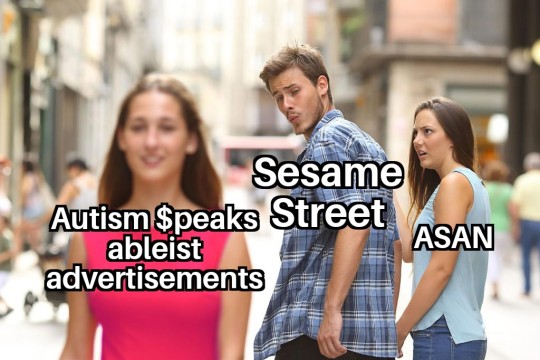
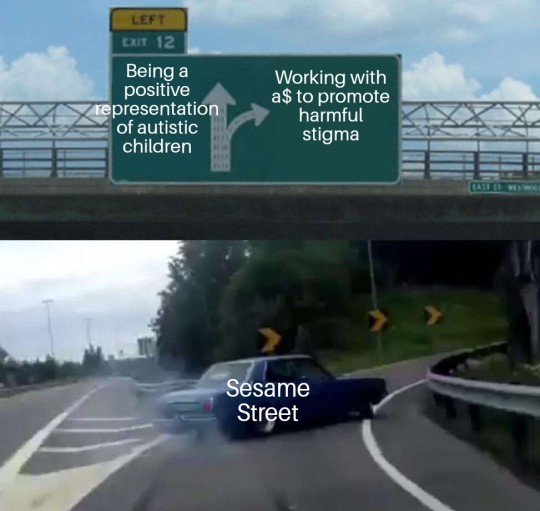
If you haven't heard already, ASAN (Autism Self Advocacy Network) has had to pull their support of Sesame Street's autism program. The reason for them pulling their support is because Sesame Street has been helping to promote harmful Autism Speaks advertisements that stigmatizes autistic people.
https://autisticadvocacy.org/2019/08/asan-has-ended-partnership-with-sesame-street/?fbclid=IwAR0K5zZqimh3AXv17y13NyPbjN_Mke1cyAa1J_WwmGIhjB_tTlQ_Ys0gohg
"Sesame Street has now decided to undo that progress. Its latest PSAs featuring Julia promote Autism Speaks’ “Screen for Autism” initiative and their resource for parents of newly-diagnosed autistic children, the 100 Day Kit. Like much of Autism Speaks’ recent advertising, these PSAs use the language of acceptance and understanding to push resources that further stigma and treat autistic people as burdens on our families. The 100 Day Kit encourages parents to blame family difficulties on their autistic child (“When you find yourself arguing with your spouse… be careful not to get mad at each other when it really is the autism that has you so upset and angry”) and to view autism as a terrible disease from which their child can “get better.” It recommends compliance-based “therapies” and pseudoscientific “autism diets,” but fails to educate families about communication supports. It even instructs parents to go through the five stages of grief after learning that their child is autistic, as they would if the child had died.
We discussed with Sesame Street, repeatedly and in great detail, what this decision would mean for the autistic community. We explained to them how these ideas harm autistic children and our families, and reinforce societal prejudice against autistic people. Our contacts acknowledged that the Autism Speaks resources were harmful and portrayed autistic children in a negative light — yet they were unwilling to reverse course in their plans to promote them. As a result, we have formally ended our partnership with Sesame Street."
Sesame Street needs to know that what they are doing they are doing is not okay. Please take the time to sign the petition to get Sesame Street to stop partnering with Autism Speaks. And if you feel up to it you could contact them directly through their website.
https://www.change.org/p/sesame-workshop-sesame-street-stop-partnering-with-autism-speaks
https://autism.sesamestreet.org/contact-us/
Edit: I've had a lot of people request that I make the links clickable to make it more accessible so I did. The only reason I didn't have it clickable originally was because Tumblr was glitching out and wouldn't post it in the tags with the links embedded for some reason.
3K notes
·
View notes
Text

Undoing Your Subconscious Programming
The 9D Arcturian Council
Channeled by Daniel Scranton
Greetings. We are the Arcturian Council. We are pleased to connect with all of you.
We have been exercising our free will to explore your subconscious minds and what they contain that can hold you back from being who you really want to be in the world. We have noticed through our exploration that there are many common themes running within the subconscious minds of humans. You share a common theme of feeling alone and thinking that everyone is eventually going to abandon you. Now, you may not be aware of that belief, but that’s what makes it subconscious. That’s not coming to you from societal programming. That’s coming to you from past life experiences. You’ve all had the experience of being left all by yourselves with no one in human form around to help you, to support you, and to love you.
Now, when you can recognize that you are holding this subconscious belief, that’s when you can start to do something about it. First of all, you must convince yourself that you could never be alone, even if everyone else in human and animal form abandons you. So you must feel for your spirit guides. Feel for the presence of those beautiful beings who have dedicated themselves to you, because they are always around. You can always count on them.
Next, you want to recognize how powerful you are as an individual. You want to demonstrate to yourself that you can create so much through the power of your vibration. So what you need to do is give yourself something that you can believe is possible to create for yourself, and then find the vibration of it so that you can have that experience and demonstrate to yourself that even if you were left all by yourself, you would have your spirit guides and your ability to create your reality.
Next, we want you to demonstrate to yourselves that no matter how far away someone is, you can still access that person by going within. You can even feel the presence of someone who has passed on, and you can feel that person’s consciousness when you go inside your heartspace with your consciousness and recognize that you could never be separate from the individual who meant so much to you in your life.
Now, once you have convinced your mind that this subconscious belief is not something you need to continue to hold onto, you can do the work of accessing the memories of those lifetimes, or even of those experiences in this lifetime where you were abandoned, and you can process your grief by feeling it in the now moment. And in so doing, you will release it, and there will be no need for you to entertain any thought, conscious or subconscious, about being abandoned by anyone, even in their death.
This would be an excellent moment in your evolution to rid yourself of that subconscious belief and then consciously activate the one that recognizes that you have the power to create the reality that you want to experience, and if that reality includes lots of loved ones around you, then you can certainly have that.
We are the Arcturian Council, and we have enjoyed connecting with you.
19 notes
·
View notes
Text
How Do We Get Back (6/16) - schitt’s creek ff
Summary: In a literal alternate universe where the Roses escaped financial ruin, David and Patrick struggle with loneliness and a sense that something isn’t right. A chance meeting in New York and a terrible tragedy drive them to question whether the timeline they are on is the right one.
This chapter is explicit. 3.4k words. (ao3)
Chapter 1 | Chapter 2 | Chapter 3 | Chapter 4 | Chapter 5
_____________________________________
Chapter 6
When Patrick’s attention drifted from the movie, which was frequently, he caught himself imagining that this was what his dating life could have been like — a large, masculine hand in his and another man’s stubble against his own skin. As it turned out, Patrick was not a fan of The Lake House, but he was a fan of cuddling on the couch with David. And he was a fan of the way David kissed him after the movie was over, his cheeks still wet with tears from his emotional reaction to the plot of the film. It was endearing that David was so moved by a film that he’d clearly seen several times already, even if the movie had made no logical sense.
Patrick was still unused to the way desire surged up and overtook him, making his head swim and his heart pound and his hands tremble. “Should we go to bed?” David asked, and Patrick couldn’t imagine a world in which he’d be able to refuse that request.
They undressed quickly, and Patrick was again struck by how comfortable he’d gotten with this in such an insanely short time. It felt like a spell had been cast over him, removing nervousness and doubts and guilt and just letting him feel. It should have been scary, getting into bed naked with this man he still didn’t know that well, but when David pulled him into his arms, kissing him as they found a natural rhythm of writhing against each other, it felt like the most natural thing in the world. He trusted David, but for the life of him he couldn’t have explained why.
“Could I try, umm…” Patrick felt his face heat up. What didn’t feel natural to him was talking about sex, but he’d learned quickly that David expected negotiation. Pressing his face into David’s neck, he spoke against his skin. “I want to try… sucking you. If that’s okay.”
“It’s definitely okay,” David said as his hand skimmed over the curve of Patrick’s ass, “but you know you don’t have to… this doesn’t have to be, like, an even exchange.”
“I know.” He kissed the corner of David’s mouth. “But I’ve been thinking about it all night.”
“Well, in that case,” David said, his voice high and breathy.
Patrick kissed him one more time before moving down his body, letting his nose drag through David’s chest hair. “And by the way, I like how hairy you are.”
“Hmm, well, I have my chest hair thinned out professionally, so you don’t know how hairy I am.”
Patrick paused, scrutinizing David’s chest. “Wait, really?”
David nodded. “I used to have all of it waxed but chest hair is back in style, so…”
“Huh.” Patrick glanced down at his own chest, which had never had much hair. “Unlucky for me, I guess.”
“Don’t be ridiculous, you look great.”
He couldn’t help but preen a little at that, and he leaned over again to kiss David’s stomach. “Really?”
“Yes, you have very nice arms and a good cock and ugh, please don’t kiss me there, I ate too much Thai food.” David said, hands fluttering at Patrick’s shoulders.
“Okay, sorry.” He moved further down the bed, running a hand over the top of one of David’s thighs. “Although you really have nothing to worry about.”
David laughed a little. “I appreciate your attempt to undo decades of societal programming, but it probably won’t happen in one night — oh, fuck.”
Patrick had decided he’d stalled long enough, so he’d dived in and ran his tongue up the underside of David’s cock, putting an end to any more discussion of David’s body issues.
He took the head in his mouth, swirling his tongue, tasting the precome that leaked from the tip. Any question in his mind that he might not like this, any lingering doubt about his sexuality at least as it applied to David Rose, was quelled. He loved this. He loved the way his lips stretched around David’s girth, and the salty taste of him, and the velvety texture of David’s skin against his tongue. He operated on instinct, doing to David what he himself enjoyed: a flutter of his tongue against the head and firmer suction as he took more of the length into his mouth. It was a challenge; David wasn’t small and Patrick was a novice. But he’d always been up for a challenge, and that was all this was: a new skill to practice and perfect, like rapid plucking on his guitar or making an accurate throw to first base. He moaned around David’s cock, so turned on that he began to wonder if he could come just from sucking another man.
“Oh my God, come here, come here,” David gasped, pushing him off.
Patrick wiped his mouth with the back of his hand and frowned, moving back up the bed. “Sorry, I’m new at this.”
“What? No, you’re great, you’re a natural, I just need—” He pulled Patrick down on top of him and kissed him, David’s hands moved to Patrick’s ass and encouraged him to thrust his hips. He felt David’s saliva-slick cock against his own and he shuddered, immediately lost to the demands of his body. “Can we… do this?” David asked.
“Yes. God, yes.” David’s legs bracketed his hips and they ground against each other, both of them on the edge. He met David’s eyes and it was suddenly so incredibly intimate, more than he could handle, and Patrick squeezed his eyes shut.
David came first, his teeth biting down on Patrick’s shoulder as he moaned, and that was all it took to push Patrick over with him. His vision whited out and he lost all track of the noises he was making or the way his body was moving as he rode out the pleasure. It took several slow seconds before he was able to even think about peeling himself off of David, grimacing at the mess between them.
“Yeah, maybe we should jump in the shower,” David said, looking down at himself.
“Good idea.” Patrick said, but didn’t move from where he’d collapsed at David’s side.
“Come on.” He heard David moving around, so Patrick levered himself up onto wobbly legs and followed the other man into the bathroom.
David kissed him as he waited for the water to heat up. “You really are a natural at giving a blow job, I wasn’t just saying that.”
Patrick flushed. “Uh, thanks. Who knew?”
“I just wanted to…” David’s eyes rolled up to the ceiling, the way they did before he was about to confess something. “I wanted to come together if we could.”
“Yeah, I’m glad. That was nice.” Nice, he scoffed internally. It was incredible. Life-altering. Everything about the last twenty-four hours with David had been life-altering.
The got into the shower together, rinsing off and leaning against each other, warm and sleepy as the steam rose around them. Patrick wanted to kiss David and so he did, pulling his head down and coaxing his mouth open. It was in some ways the most intimate thing they’d done, perhaps the most intimate thing he’d ever done with another person, this drowsy makeout session as water poured over them from David’s expensive showerhead.
Once they were dried off and back in bed, skin warm from the shower, Patrick hesitantly moved close to David’s side, and was gratified when David put his arm around him, pulling him closer.
“Just for a minute; I don’t like getting sweaty in my sleep,” David said.
Patrick grinned. “Okay, David.”
~*~
“I told you not to go back to him! Didn’t I tell you not to go back to him?”
Patrick woke up with a start, uncertain if the shouting voices he was hearing were the remnants of a dream. He picked up his phone from the nightstand and squinted at it. 4:47am. He was alone in bed.
“Right, and you’re so skilled in relationships, David!” This was a woman’s voice, and she sounded like she was crying. Patrick got up quickly, searching around on the floor for his clothes.
“Maybe not, but I know Stavros is bad news. I’ve told you every time he’s broken your heart but you keep going back for more, and every single time I have to pick up the pieces,” David said.
“Don’t act like you’re the only one who helps the other one after a breakup,” said the woman.
“Oh, you mean like when Sebastian left me and you didn’t even return my texts about it for five days?” David said.
“I was skiing in the Alps, David.”
“You don’t ski!”
Patrick opened the bedroom door and ventured out into the living room. David was in a t-shirt and sweatpants, one side of his hair adorably sticking up from the way he’d slept on it. Standing across the room from him was a woman in her late twenties. She had long hair with blond highlights, an incongruous gold headband across her forehead, and mascara streaked down her cheeks. She wore a sparkly dress that was short by any standards, but particularly for a February night in New York.
“Oh, you have company,” the woman said flatly, then sniffled. “I didn’t realize.”
“Sorry my sister woke you,” David said, his teeth gritting together.
“Hi,” Patrick said. “Nice to meet you.”
“Is this the one you were texting me about?” she asked.
“Fuck off, Alexis.”
Patrick was intensely curious about what David had texted his sister about him, but he also couldn’t help but notice the fact that Alexis was clutching the back of the sofa she was standing next to, swaying a bit on her high heels and not quite focusing her eyes on anything. On top of being upset, she didn’t seem sober.
“David, do you have tea? I could make your sister a cup of tea.”
“Yeah, in the cabinet next to the fridge,” he said, waving his hand to the kitchen. “Alexis, sit down,” David said more softly.
From the kitchen, Patrick could hear the murmur of their voices. Alexis was still crying but at least they weren’t arguing anymore. He opened the cabinet David had indicated, happy to see that David’s Canadian roots meant he owned an electric kettle. Patrick pulled it down and filled it with water, plugging it in and pressing the switch to start the water heating up.
David had made a few comments in the course of their conversations to indicate that his parents had been absent a lot of the time, leaving David and his sister to take care of each other. For the first time, Patrick really wondered what that was like, having parents who didn’t make their kids the center of their world. He’d envied David’s upbringing earlier when they were talking about coming out of the closet, but now the downside seemed evident. David and his sister both seemed to have personal lives overflowing with past or present heartbreaks.
Patrick found a box of tea bags and some mugs, and when the kettle clicked, he filled each of them, staring down into the darkening water as he listened to the murmur of voices from the next room.
“I think… I think he enjoys manipulating me. Gets off on it,” Alexis was saying as Patrick rejoined them in the living room, setting a mug of tea in front of Alexis before going back for the other two.
“Yeah, I know, he’s the worst,” David muttered.
“I knew he’d cheated sometimes in the past, but the way he flaunted it tonight…” she continued.
David said something Patrick didn’t hear while he was getting the other mugs, but he returned in time to hear Alexis say, “He humiliated me in front of everyone.”
“How?” asked David.
Patrick went to get a box of tissues from David’s bedroom, coming back in and setting them down in front of Alexis. She took one and dabbed her eyes; if she noticed how the tissues had appeared there, she gave no sign of it.
“He texted me and said everyone was going to be at Plunge tonight. That it was going to be a big night because Finneas O’Connell was going to be there celebrating his twenty-first birthday, and he’d make sure that me and whoever I wanted to bring would be on the list.”
David looked impressed by this fact. Patrick had no idea why.
“So I texted everyone: Klair, Lil, Blair, Tiff, the whole gang, and told them to come. We get there, and not only are we not on the list, but Stavros at that very moment starts posting pictures of himself from across town, partying with Tyga and making out with all these models. And I’m just standing there on the street, and everyone sees the posts — everyone knows that he’s doing all this to make me look as stupid as possible.”
David glanced at Patrick and shook his head, but Patrick wasn’t sure exactly what he was reacting to: his sister’s club-hopping lifestyle or the names of her friends or the fact that Alexis’ current level of upset seemed to be centered around some ill-timed pictures on social media.
“So then Klair goes, ‘let’s get out of here,’ so we go to another club and order, like, a million shots, but the whole time people are texting me asking if I saw the pictures Stavros has been posting all night. It was a nightmare.”
“Mm hmm,” David said, noncommittally.
They sipped their tea in silence for a minute.
“Anyway,” Alexis said, “he’s just pissed at me because I caught him trying to take his condom off when we were changing positions the other night. He thought I wouldn’t notice, I guess.”
“What the fuck?” David shouted, his voice rising.
“That’s assault,” Patrick couldn’t help but add. He knew he wasn’t part of this, but he felt a surge of sympathy for Alexis. Perhaps she was a vapid socialite, but she just seemed so lost. And she certainly didn’t deserve this man’s abuse.
Alexis sniffled and wiped at her face. “No, I know, but—”
“No, Patrick’s right,” David said, shooting him a grateful glance. “Alexis, please never see him again. He’s a monster.”
Alexis nodded, and David reached out and awkwardly patted her back.
After a few more minutes, Alexis seemed to shake her dark thoughts off, swiping under her eyes and sitting up straight, her eyes brightening a little. “You know what? It’s gonna be good, actually. Because Klair said she might take a trip to Dubai and she invited me to go, so that’ll take my mind off of Stavros. Nothing like going dancing all night on the other side of the world to put things in perspective.”
David narrowed his eyes. “And when would you be doing that?”
Alexis had pulled out her phone, her finger scrolling on the screen like it was an autonomic reflex. “I don’t know. Friday, I think?”
Sighing, David stood up. He looked resigned. “You can crash in the spare room tonight, Alexis.”
Alexis looked up and gave him a simpering smile. “Thanks, David. Thanks for getting up in the middle of the night and taking care of me.”
David fluttered his hand in the air, a gesture that seemed to mean ‘it’s fine, whatever, don’t make it a thing’ and retreated to his own bedroom.
“Well, it was nice meeting you, Alexis, in spite of the circumstances.” Patrick said, standing to follow David.
She narrowed her eyes at him. “You don’t seem like one of David’s usual hookups.”
“Oh, no?”
“No, you seem too normal. Like a person. You seem like a person.” She pulled off her heels and picked them up, heading for the spare bedroom.
“Thanks, I guess?” Patrick said.
“Night-night.”
Patrick found David sitting on the bed, his expression hard to read. Which was unusual for David; even knowing him for such a short time, Patrick felt like David’s facial expressions were always easy to read.
“Sorry about that,” David said.
“Don’t worry about it. It’s good she had you to come to.”
“Yeah, and then she’s off on another trip before I can turn around. That’s the way Alexis has done things since she was a kid. She shakes off her problems and runs away.” David sniffed, collapsing back against the pillows. “I’m going back to sleep.”
Patrick looked at his phone. “At this point, I may as well stay up. I’ve got to catch the ferry back to Hoboken by 6:45.”
David groaned. “Okay. Wanna do dinner tonight? I could take you to my favorite pizza place. Proper Neapolitan pizza — you’ll think you’re in Italy.”
Patrick’s stomach turned over. “Um, actually my flight back to Toronto is tonight. Today’s the last day of the seminar.”
Eyes popping open, David sat up. “I thought you had one more day.”
Patrick shoved his hands into his pockets. “No, I do have one more day of the seminar, but then I have to go straight to the airport after.”
“So you’re flying home. Tonight.”
“Um… yeah.” Patrick had the sudden wild impulse to postpone his flight. To cancel it. To never let David Rose out of his sight ever again.
David stood up, pacing over to the windows. It was still fully dark, sunrise over an hour away. “Okay, well, it was fun. Have a nice life.”
“David…”
“What?” David was pretty transparently trying to hide his disappointment under a layer of apathy. Patrick felt a little bit honored to have inspired that level of emotion in him.
“There is a big part of me that doesn’t want to leave—”
“Oh yeah? What part of you is that?”
David’s implication was clear. “It’s not just the sex,” Patrick said. “But I have responsibilities. I’m supposed to be at work tomorrow, for one thing, and…”
“And you have a wife.” He waved his hand dismissively. “Whatever, I didn’t invite you to move in with me. We had two dates. It’s not like our lives are in any way compatible.”
That stung. Patrick took a step back. “Yeah, I guess not.”
David continued to avoid looking at him, and Patrick felt the words he wanted to say dammed up behind his lips. That David made him feel right in a way that no one ever had. That his life would never be the same. That he didn’t want to go. Instead of saying any of that, he leaned over and picked up his shoes. “Goodbye, David.”
David turned back to the bed, lying down and burrowing under the covers. “Bye.”
Once he had his shoes and coat on, Patrick left the apartment and descended quietly to the street. He immediately headed in the direction of the place where he’d gotten a taxi the day before. When a hand reached out and grabbed his ankle from a bundle of blankets next to the sidewalk, Patrick jumped. And also might have screamed a little bit.
The owner of the hand sat up, and he recognized the homeless woman from yesterday.
“Have you figured out how to get back?” she asked him.
“Get back where?” he said, edging backwards out of her reach.
“Back where?” She seemed very indignant at the question. “Back home.”
“I’m going home tonight,” he said, wondering why he wasn’t walking away from this conversation. Patrick supposed he wanted to catch a glimpse of where her madness led. Perhaps because he was feeling a sort of madness of his own getting close to the surface.
She shook her head. “That’s not the home I mean. You know it’s not right, don’t you? You know it’s not where you belong.”
“I do,” he whispered.
The woman fixed him with a steely stare. “So fix it.”
Patrick backed up another couple of steps, then turned on his heel and began walking away. As he did, the woman started to sing. Her voice was clear and beautiful, and it carried a long way in the predawn air.
Give me a lifetime of promises and a world of dreams
Speak the language of love like you know what it means…
Chapter 7
#schitt's creek#schitt's creek ff#david x patrick#david x patrick ff#david x patrick fic#david x patrick smut#hdwgb fic#my fic
6 notes
·
View notes